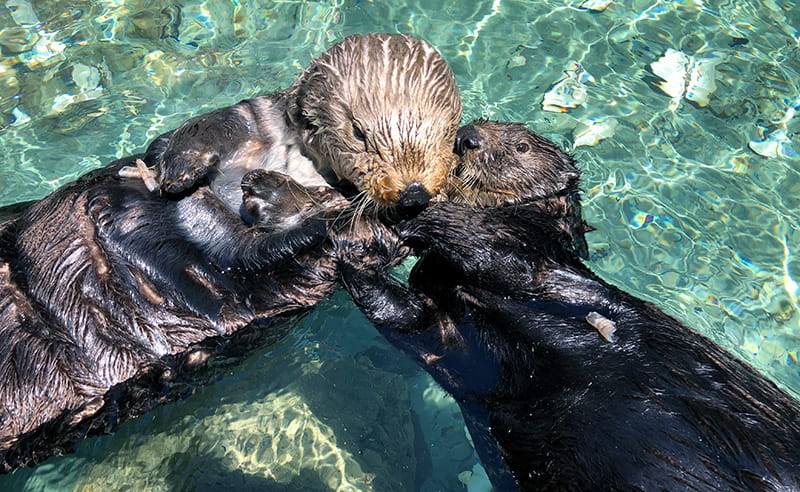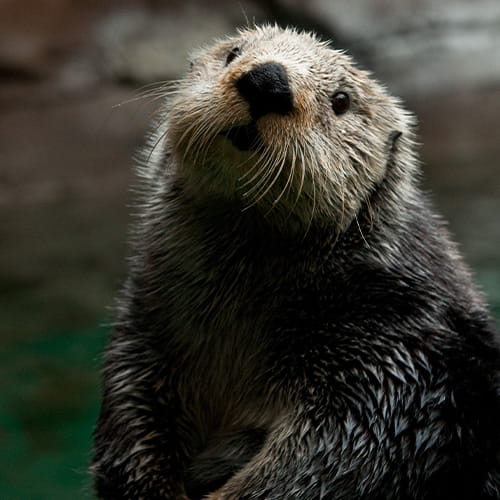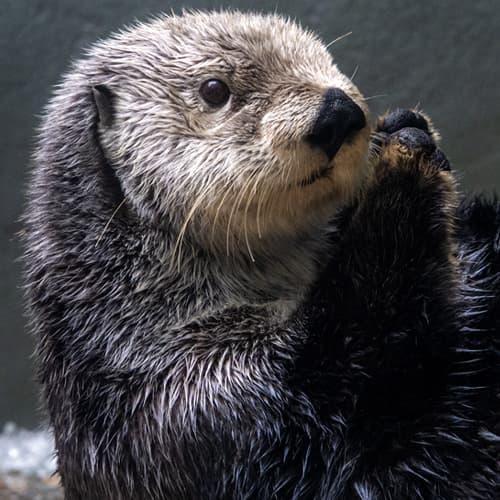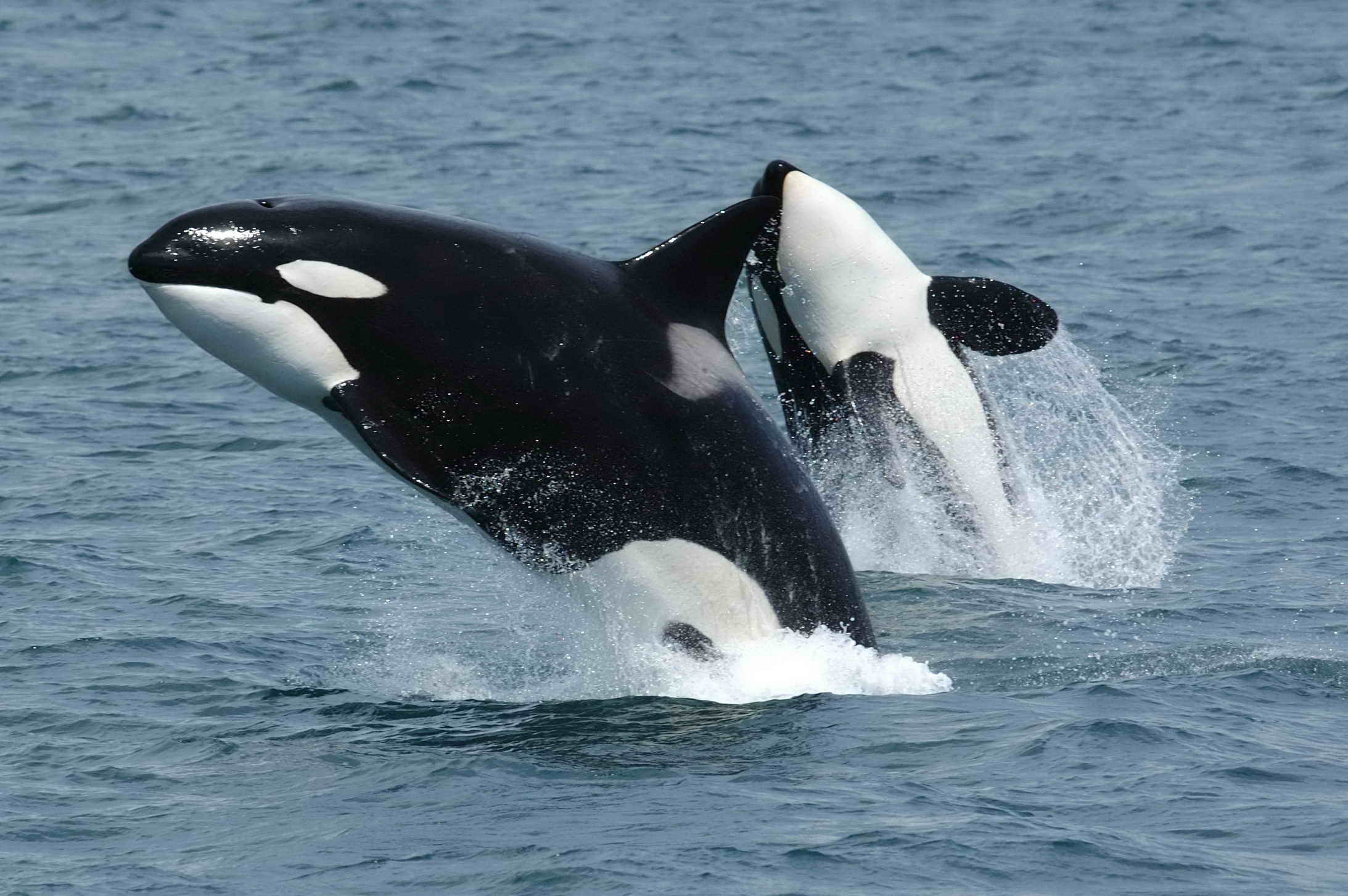
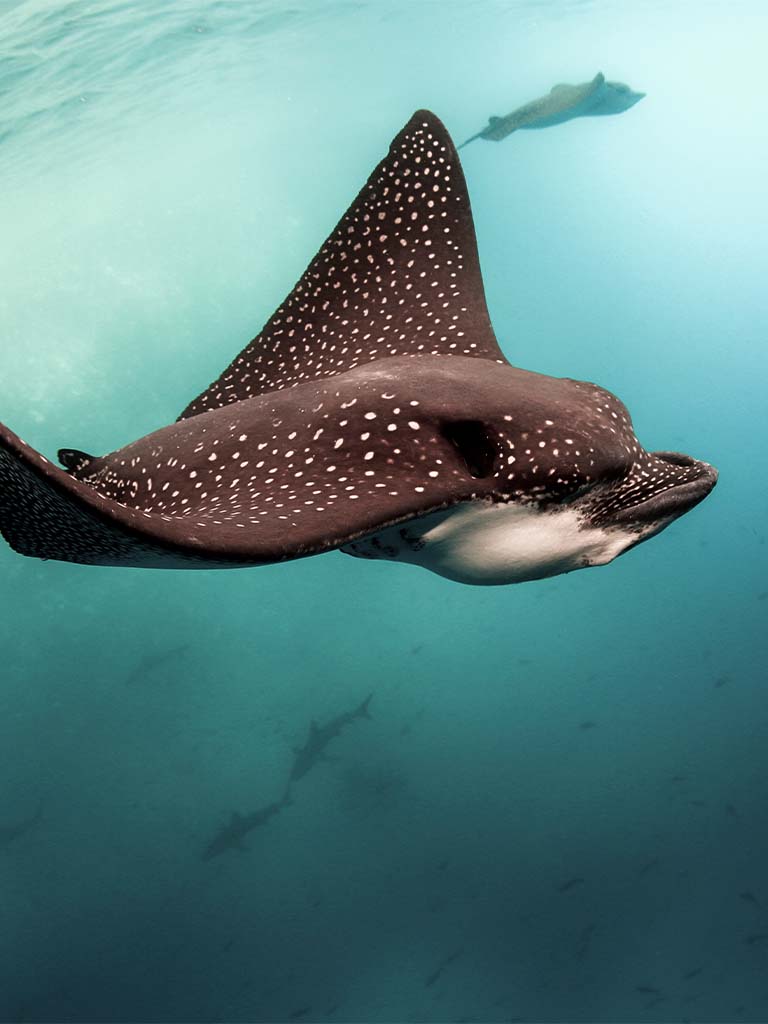
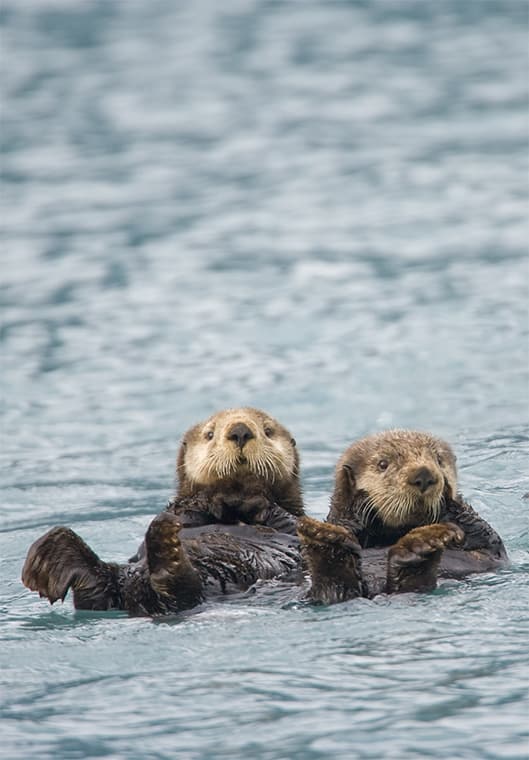
fostering empathy for wildlife workshop
Are you interested in learning more about using empathy to motivate guests to take conservation action? The Seattle Aquarium has led workshops around the country to help aquariums and zoos do just that.
AZA-accredited zoos and aquariums use education to connect the public with critical conservation issues. These institutions engage communities through diverse programming that uses research-based strategies to inspire conservation action. Successfully inciting conservation action depends on addressing barriers, incentives and internal motivators. Internal motivators—such as connectedness to nature, environmental identity, emotional affinity with nature, environmental self-efficacy, nature relatedness and empathy—are all associated with conservation action. Of these, empathy toward wildlife is an important factor in predicting an individual’s willingness to take conservation action. To continue improving the quality of our programming, it’s valuable to understand how empathy is developed toward wildlife.
See what our participants say
"Thanks for shining a light on this important topic and giving us actual tools to use to evaluate this in our programs."
"So enjoyed the course! Fantastic teachers and great information! Thanks for making the trip!"
"This was great! I feel that I came away from the workshop with a lot of new and interesting information. It was also a great deal of fun!"
"I appreciate the time spent on this training and feel there are specific things I can use in my work."
"It was a great workshop. Very inspiring with helpful tools I can start using now."
Workshop FAQs
Are workshops currently being offered?
Yes! We are currently planning for the 2024 empathy workshop season and beyond. If you are interested in scheduling a workshop at your facility, please fill out an interest form by clicking the “Request a Workshop” button above.
What is the workshop?
This workshop lasts 1.5 days. The first day is an introduction to the concept of empathy, including exercises and activities focused on building and identifying empathy in programs. This introduction is suitable for all staff across departments. The day will conclude with an optional action-planning session for participants who wish to integrate empathy principles into their work. Day two focuses on operationalizing the concepts learned on day one and includes an overview of the empathy measurement tools and time to practice using these instruments. This day is suitable for staff who will be implementing or evaluating empathy-based practices. It’s also beneficial for anyone who participated in the first day, to allow a deeper understanding of empathy and how it can be operationalized in the work they do.
We also offer an optional, one-hour executive session add-on for staff/volunteers who are interested in the topic of empathy for animals but can’t attend the full workshop.
What are the goals of the workshop?
Throughout this workshop, participants will understand that:
- Empathy is a unique affective capacity.
- Empathy toward animals is a learned mental and emotional process cultivated throughout a person’s life.
- Fostering informed perceptions and understandings of the needs and experiences of animals through best practices supports empathy development.
- Empathy impacts our work and can be an important tool in encouraging compassionate behavior toward animals.
Participants will be able to:
- Recognize empathic responses and behaviors in visitors.
- Identify areas of their work where they can incorporate empathy principles.
- Comfortably use empathy measurement instruments.
- Network with colleagues within and outside of their institutions.
How many people can attend?
The Seattle Aquarium does not limit the size of the workshop—usually it’s up to the institution and its available space. We’ve found that it works best with up to 60 attendees.
How much does it cost?
The Seattle Aquarium provides:
- Briefing document and supporting materials
- Two workshop leaders
- 10–12 hours of instruction
- Empathy measurement tools and training
- Ongoing support after the training
- One-hour overview/executive session (if desired)
Host provides:
- Travel for two workshop leaders (air, lodging, meal and transit reimbursements) (If your institution is located in the Seattle area, only mileage, parking and lunch are requested)
- Printing of workshop materials
- Lunch for workshop (optional for participants, required for facilitators)
- Workshop space on grounds
- Live animal experience (if feasible)
- Opportunity for local colleagues to join if space is available (with preference for AZA facilities)
Where have workshops been conducted in the past?
Great question! Download our map of past workshops to see where the Seattle Aquarium has hosted and attended empathy workshops.
MEET OUR FACILITATORS
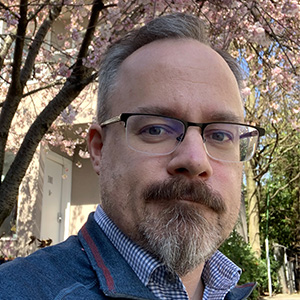
Jim Wharton, Ph.D.
Vice president, conservation engagement and learning
(he/him/his)
Jim provides leadership for the Aquarium’s empathy focus and has served as principal investigator on two major empathy grants. He has over 20 years of experience in the field of marine conservation engagement and co-created the empathy workshops. Jim sees empathy as a key driver and strategy in the Aquarium’s conservation mission, connecting people to animals and ecosystems and encouraging them to see the ocean as a source of hope, wonder and belonging…not to mention essential to their survival.
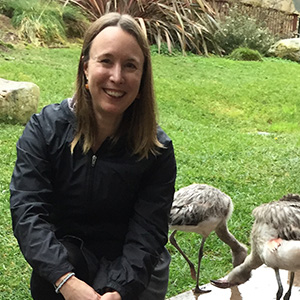
Darcie Larson
Senior Manager
(she/her/hers)
Senior Manager, Community engagement and inclusion, leads a team of amazing staff and volunteers who engage with community at local beaches, rivers and partner sites outside the walls of the Aquarium. With over 20 years of experience in marine conservation, education and outreach centered around the Salish Sea, Darcie approaches her work with a race and social-justice lens and loves having conversations about how we can use empathy to connect with people and animals.
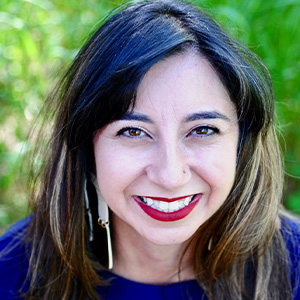
Kathayoon Khalil, Ph.D.
Director of Engagement for Zoo Advisors
(she/her/hers)
She consults with zoos and aquariums on strategic planning. Kathayoon began working on the empathy project at the Seattle Aquarium in 2015 and has taught numerous workshops on the subject. Additionally, she has given several talks on empathy at conferences and events, both nationally and abroad. Kathayoon enjoys helping zoo and aquarium professionals to think about their empathy work with intentionality and purpose, creating full programmatic life cycles that include planning, implementation and evaluation.
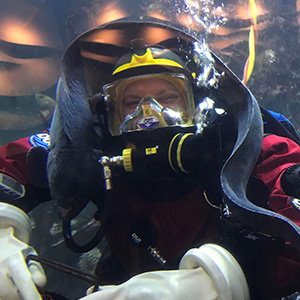
Cari Garand
Interpretation Training Coordinator
(she/her/hers)
Cari trains, coaches, supervises and supports the seasonal staff in the Aquarium’s visitor engagement department. You may also find her blowing bubbles and high-fiving eager explorers as one of the Aquarium’s scientific divers. “Although I may not have realized it, empathy played a huge role in fostering my own passion for the ocean. In college, I was (and still am) in awe of what many people overlook at a trip to the beach: the amazing barnacle! I was fascinated to learn they live upside down in a home they built, doing headstands while eating with their feet. The complexity of a seemingly simply creature catapulted me into a lifetime of marine education and conservation.”
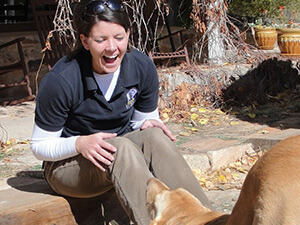
Sarah Brenkert, M.S.Ed.
Principal Evaluator
(she/her/hers)
In addition to her work as a social science researcher, Sarah has a background in informal learning theory, exhibit design and development, and early childhood education. Sarah earned a Master of Science in early childhood and elementary education from Bank Street College of Education in New York City, and formerly held leadership positions in education and evaluation at the Children’s Museum of Denver and at Denver Zoo. Sarah is insatiably curious about how and what people learn when they spend time in zoos, aquariums, museums and science centers. Sarah's favorite part of her job is working with others to ask interesting questions and explore stories of impact and transformation in free-choice learning spaces.
